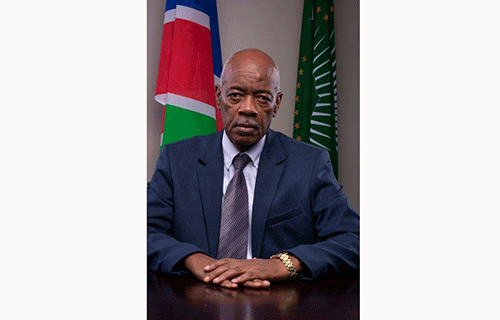The 25th April 2022 marked the 3rd anniversary of the passing of Mvula Ya Nangolo, Namibia’s celebrated poet and accomplished journalist of note.
He was born on 9 August 1943 at Oniimwandi, in what is now known as Oshana region, and grew up in Lüderitz and later Windhoek. He joined the liberation movement, Swapo, at the age of 18 and later studied journalism in the then East Germany. He was one of Namibia’s first black journalists; he worked for European press.
Tate Mvula, as we used to call him, was the first editor of Namibia Today, and worked as a broadcast journalist for The Voice of Namibia during the exile years. Namibia Today is Swapo’s mouthpiece newspaper and The Voice of Namibia was the movement’s radio programme that used to broadcast from exile.
He served for many years as special advisor to the Ministry of Information and Communication Technology until his retirement from public life.
In 1995, he published Kassinga: A Story Untold – an account of the 1978 massacre of hundreds of Namibians in a refugee camp in Angola by the South African Apartheid military.
His other poetry publications include From Exile (1976), Thoughts from Exile (1991) and Watering the Beloved Desert (2008).
I had the honour to know and to befriend this “jewel of a man” at a deeper, personal level. He was like a mentor to many of us during the exile years – and that close bond between us continued up to independence. In 1981, when I was studying at the then United Nations Institute for Namibia (UNIN) in Lusaka, Zambia, I was roped in to assist as a broadcaster in Otjiherero at “The Voice of Namibia”.
I have this disposition of talking with my hands, and when he saw that, he told me in a fatherly manner “…you need to control your hands when you are on the air”.
A group of us at UNIN also tried our hand at poetry, and those poems were later published in 1982 in the anthology, titled: ‘It is no more a cry’.
After listening to some of our poems, Tate Mvula, brutally honest as he was, commented: “…these are not poems; these are emotional political statements”. The words sounded very harsh, but we understood he meant well, because he wanted us to up our game as far as the writing of poetry was concerned.
Mvula Ya Nangolo grew up in cosmopolitan Lüderitz and Windhoek’s Old Location. He was, thus, a product of what I call, for a lack of a better word, eembuiti culture.
These are those Ovambos who grew up in towns and, over the years, developed a unique tapestry of culture and an urban slang, which is a mixture of Oshiwambo, Otjiherero, Afrikaans and even English.
He was at home in most Namibian African languages as well as English, Afrikaans and German. He could also communicate in French, Kiswahili and Chinyanja (Zambia’s lingua franca, mainly spoken in the Lusaka area).
He could, with relative ease, shuttle across a few cultures.
Being from the Aandonga Royal House, he was also very proud of his culture. He, however, did not look at ethnic culture in a parochial way, but he saw that in the context of cultural unity in diversity and, thus, as a necessary “brick” to build the Namibian House.
Knowing that he loved poetry, I gave him a book of poetry in 2003, titled: The Prophet by the legendary Lebanese-born poet, Khalil Gibran.
Metaphorically speaking, Tate Mvula, as a poet, was also a prophet of sorts. He highly valued that small gift from one of his mentees.
It is only appropriate to celebrate the life of this great poet by quoting from at least two of his poems. In the poem From Exile, he tells us:
From exile when I return
I’m going to beg someone to touch me
very, very tenderly
and gradually put me at ease
I wish to feel again how life feels
In the poem Namibia, from his collection ‘Watering the Beloved Deseret’, he reflects:
My heart opens up when I am in the mountains
Where I can be alone with my thoughts
I’ve returned here to be in the deserts
I love to hear the sound made by sand dunes”.
He is now in the mountains – alone with his thoughts – but his thoughts live on.


